第23章 MY HUNT AFTER "THE CAPTAIN."(18)
Measured by its sovereign hotel, the Continental, it would stand at the head of our economic civilization. It provides for the comforts and conveniences, and many of the elegances of life, more satisfactorily than any American city, perhaps than any other city anywhere. Many of its characteristics are accounted for to some extent by its geographical position. It is the great neutral centre of the Continent, where the fiery enthusiasms of the South and the keen fanaticisms of the North meet at their outer limits, and result in a compound which neither turns litmus red nor turmeric brown. It lives largely on its traditions, of which, leaving out Franklin and Independence Hall, the most imposing must be considered its famous water-works. In my younger days I visited Fairmount, and it was with a pious reverence that I renewed my pilgrimage to that perennial fountain. Its watery ventricles were throbbing with the same systole and diastole as when, the blood of twenty years bounding in my own heart, I looked upon their giant mechanism. But in the place of "Pratt's Garden" was an open park, and the old house where Robert Morris held his court in a former generation was changing to a public restaurant. A suspension bridge cobwebbed itself across the Schuylkill where that audacious arch used to leap the river at a single bound,--an arch of greater span, as they loved to tell us, than was ever before constructed. The Upper Ferry Bridge was to the Schuylkill what the Colossus was to the harbor of Rhodes. It had an air of dash about it which went far towards redeeming the dead level of respectable average which flattens the physiognomy of the rectangular city. Philadelphia will never be herself again until another Robert Mills and another Lewis Wernwag have shaped her a new palladium. She must leap the Schuylkill again, or old men will sadly shake their heads, like the Jews at the sight of the second temple, remembering the glories of that which it replaced.
There are times when Ethiopian minstrelsy can amuse, if it does not charm, a weary soul, and such a vacant hour there was on this same Friday evening. The "opera-house" was spacious and admirably ventilated. As I was listening to the merriment of the sooty buffoons, I happened to cast my eyes up to the ceiling, and through an open semicircular window a bright solitary star looked me calmly in the eyes. It was a strange intrusion of the vast eternities beckoning from the infinite spaces. I called the attention of one of my neighbors to it, but "Bones" was irresistibly droll, and Arcturus, or Aldebaran, or whatever the blazing luminary may have been, with all his revolving worlds, sailed uncared-for down the firmament.
On Saturday morning we took up our line of march for New York.
Mr. Felton, President of the Philadelphia, Wilmington and Baltimore Railroad, had already called upon me, with a benevolent and sagacious look on his face which implied that he knew how to do me a service and meant to do it. Sure enough, when we got to the depot, we found a couch spread for the Captain, and both of us were passed on to New York with no visits, but those of civility, from the conductor. The best thing I saw on the route was a rustic fence, near Elizabethtown, I think, but I am not quite sure. There was more genius in it than in any structure of the kind I have ever seen,--each length being of a special pattern, ramified, reticulated, contorted, as the limbs of the trees had grown. I trust some friend will photograph or stereograph this fence for me, to go with the view of the spires of Frederick, already referred to, as mementos of my journey.
I had come to feeling that I knew most of the respectably dressed people whom I met in the cars, and had been in contact with them at some time or other. Three or four ladies and gentlemen were near us, forming a group by themselves. Presently one addressed me by name, and, on inquiry, I found him to be the gentleman who was with me in the pulpit as Orator on the occasion of another Phi Beta Kappa poem, one delivered at New Haven. The party were very courteous and friendly, and contributed in various ways to our comfort.
It sometimes seems to me as if there were only about a thousand people in the world, who keep going round and round behind the scenes and then before them, like the "army" in a beggarly stage-show.
Suppose that I should really wish; some time or other, to get away from this everlasting circle of revolving supernumeraries, where should I buy a ticket the like of which was not in some of their pockets, or find a seat to which some one of them was not a neighbor.
A little less than a year before, after the Ball's Bluff accident, the Captain, then the Lieutenant, and myself had reposed for a night on our homeward journey at the Fifth Avenue Hotel, where we were lodged on the ground-floor, and fared sumptuously. We were not so peculiarly fortunate this time, the house being really very full.
Farther from the flowers and nearer to the stars,--to reach the neighborhood of which last the per ardua of three or four flights of stairs was formidable for any mortal, wounded or well.
The "vertical railway" settled that for us, however. It is a giant corkscrew forever pulling a mammoth cork, which, by some divine judgment, is no sooner drawn than it is replaced in its position.
This ascending and descending stopper is hollow, carpeted, with cushioned seats, and is watched over by two condemned souls, called conductors, one of whom is said to be named Igion, and the other Sisyphus.